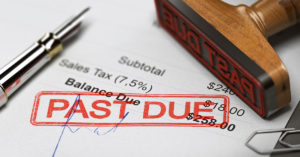
Prioritizing your finances during an economic crisis is a crucial skill to master. Deciding what bills to pay, and what bills to set aside now becomes increasingly more important. This is something you will want to do as soon as possible, because the longer you wait, the more difficult it will be to get a firm grip on your finances.
Calculate Your Income and Basic Living Expenses
You cannot decide what bills to pay without first determining how much money you have to pay your bills. Add the income from your job, social security payments, pension payments, legal settlements, etc.
You will also want to add up your monthly basic living needs. This calculation should include mortgage/rent payments, utilities, food, health insurance, etc.
Organize Your Financial Obligations
When you are determining what bills to pay, you must have a clear picture of your overall financial situation. Using Excel is a fast and efficient way to create a list where you can track these expenses and maintain an accurate accounting of where you stand.
You will want to break your list down into categories. For instance, credit cards, utilities, medical bills, legal bills, student loans, mortgage/rent payments, collection accounts, etc. You will want to include the following with each obligation:
- Account Number
- Date of Last Statement
- Balance of the Debt
- Interest Rate
- Minimum Monthly Payment
- Amount Paid
- Last Payment Amount
- Next Payment Due Date
- Status of Account/Details of Payment Arrangements
Contact your Creditors
Banks don’t like to repossess cars and foreclose on mortgages. They know that many consumers are grappling with deciding what bills to pay right now, and what bills to pay down the road. As a result, many lenders are offering internal programs for clients to reduce or defer payments. It can be to your advantage to contact your creditors to find out what options are available and what steps you need to take in order to qualify.
Be Ready to Make Hard Choices and Sacrifices
If you have to decide what bills to pay, you are going to have to determine what can be trimmed from the budget. Income and savings are finite and the more you can trim, the better financial position you will be in when the current economic crisis eases.
Start with extraneous spending. Cutting restaurant meals, alcohol, cigarettes, clothing, gym memberships, streaming services, etc. may free up hundreds of dollars or more per month. When you consider what bills to pay, the easiest decision is to cut the ones that you don’t have to pay.
It is also a good idea to turn off any auto-pay arrangements you have with creditors. This will give you greater discretion that you can use to juggle your bills and determine what bills to pay.
Review Your Credit Report for Errors and Identity Theft
Creditors are not immune to economic tides. Errors are common when banks, medical offices, retailers, and collection agencies lose personnel due to layoffs and downsizing. Fewer personnel handling accounts means that records of payments and the status of debt obligations fall through the cracks.
Identity theft rises significantly when the economy falters. It is vital to check your report to ensure that no one has opened accounts or secured loans in your name. The sooner you identify theft, the less damage an identity thief can do to your finances as you grapple with what bills to pay.
It is advisable to check your credit report. You may obtain a free report from Transunion, Experian and Equifax every 12 months. This makes it possible to respond instantly to errors and potential instances of identity theft.
Pay Attention to Legislative Activity
The coronavirus pandemic has unleashed a tidal wave of more than $2 trillion in funding from Washington. While most people received a stimulus payment, there are many other state and federal provisions that have gone largely unnoticed. This includes provisions to prohibit evictions, defer mortgage payments*, and delay student loan payments. Knowing which programs you qualify for can make it much easier to determine what bills to pay this month, and what bills to pay next month.
Legislators are currently debating a second round of stimulus payments and measures. Among the measures under discussion are protections that would pause vehicle repossessions and halt debt collections. While these are not signed into law, legislators are hoping to have a fresh package finalized and ready for presidential signature around mid-summer.
*Homeowners with loans through Fannie Mae or Freddie Mac have multiple options for deferring payments at this time.
Seek Help from a Qualified Consumer Protection Law Firm
The consumer protection law firm of Flitter Milz can help. Contact us for a free legal evaluation of your rights regarding your debt obligations as you determine what bills to pay as you organize your finances.







